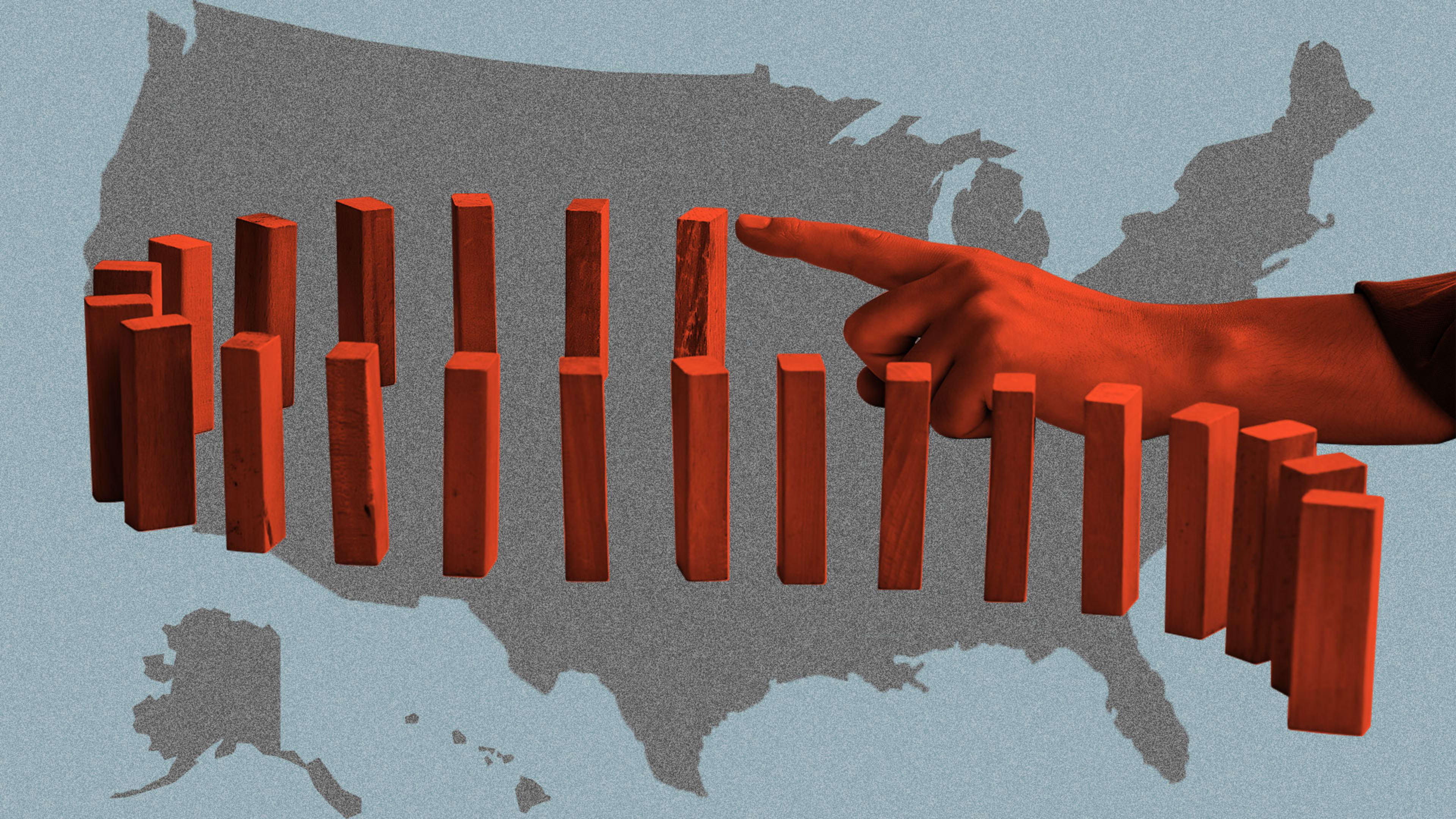A decision by the U.S. Supreme Court on Friday overturned the landmark Roe v. Wade ruling, undoing a half-century of legal precedent that had established and maintained abortion as a protected constitutional right within the United States.
The court’s 6-3 vote upheld a strict abortion ban in Mississippi, while a 5-4 vote overturned Roe. The decision, widely expected after a majority court opinion leaked to the press in early May, means that the question of reproductive rights has effectively been returned to the states, where a patchwork of laws ranging from outright bans on abortion to those designed to protect women’s right to choose will now be in full effect.
Conservative lawmakers in a number of states have been preparing for this moment—for decades, in some cases. According to data from the Guttmacher Institute, a nonprofit that tracks access to reproductive healthcare, 13 states have so-called trigger laws in effect that will ban most abortions immediately. The states are as follows:
- Arkansas
- Idaho
- Kentucky
- Louisiana
- Mississippi
- Missouri
- North Dakota
- Oklahoma
- South Dakota
- Tennessee
- Texas
- Utah
- Wyoming
In addition, the institute wrote in a blog post earlier this month, another 13 states are expected to ban abortion pretty quickly after the overturning of Roe v. Wade, meaning more than half of U.S. states could have an abortion ban in place very soon.
To visualize just how devastating an impact today’s decision will have on reproductive rights across the country, some groups, including Planned Parenthood, have created interactive maps using the Guttmacher Institute’s data. Planned Parenthood’s map, which is color-coded, shows large swaths of the country in red, notably in the Southeast, Midwest, and the Great Plains. Oklahoma, which recently passed the country’s most restrictive abortion ban, is shown in black.
As Guttmacher points out with its own interactive map, these bans will create especially significant barriers to reproductive care in Southern states, where abortion seekers would need to drive sometimes several hundred miles before they reach a more permissive state. Several of those very same states have some of the highest poverty rates in the country.
As Fast Company previously reported, pro-choice activists have been fighting for additional abortion rights in states where the overturning of Roe v. Wade will have a serious impact. In Michigan, for instance, abortion-care counseling is mandated and patients may not have the procedure until they’ve waited a full day after counseling.
This story has been updated to clarify that the 6-3 decision pertained to the Mississippi case and the 5-4 decision to Roe.
Recognize your brand’s excellence by applying to this year’s Brands That Matter Awards before the early-rate deadline, May 3.
